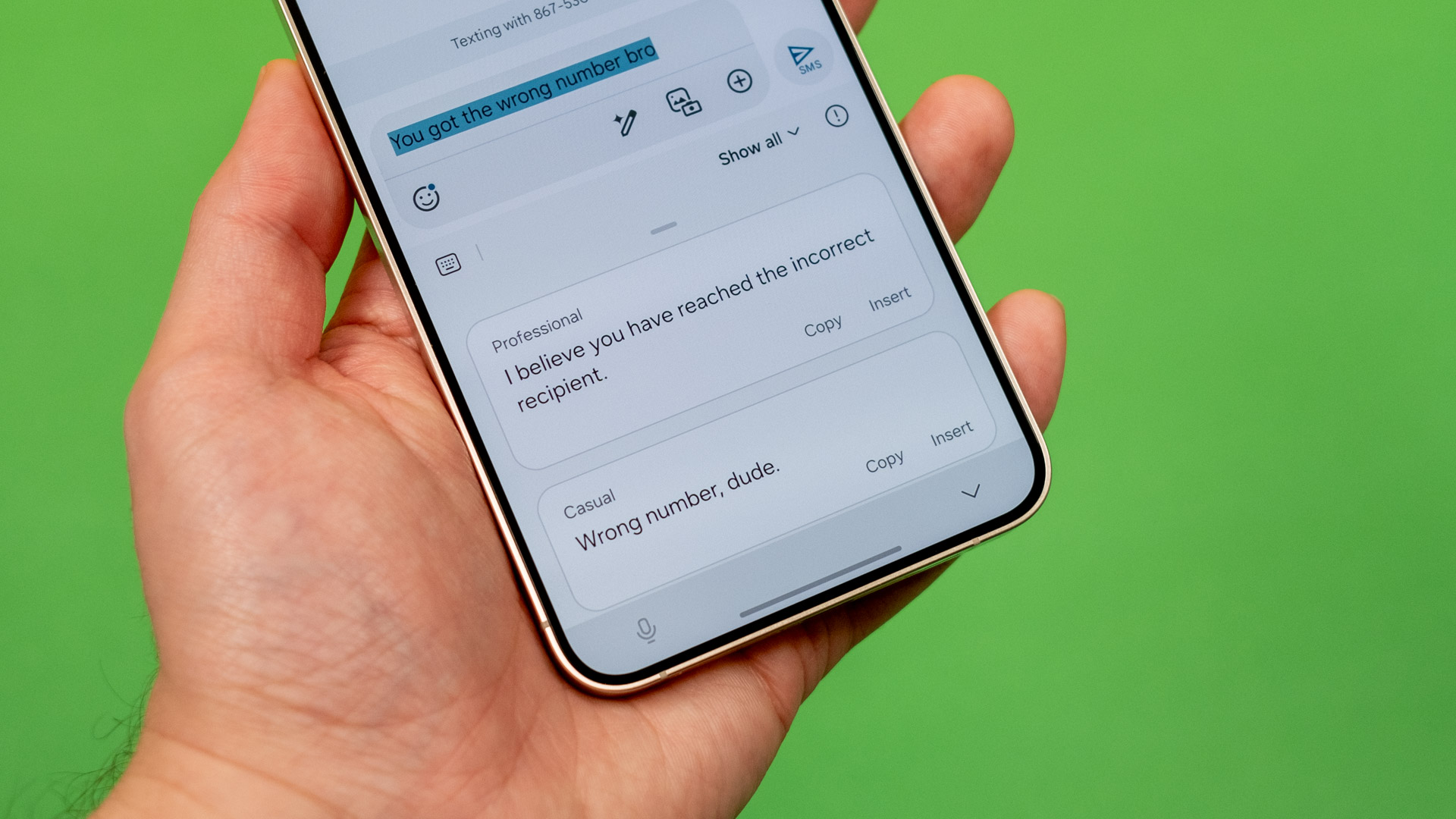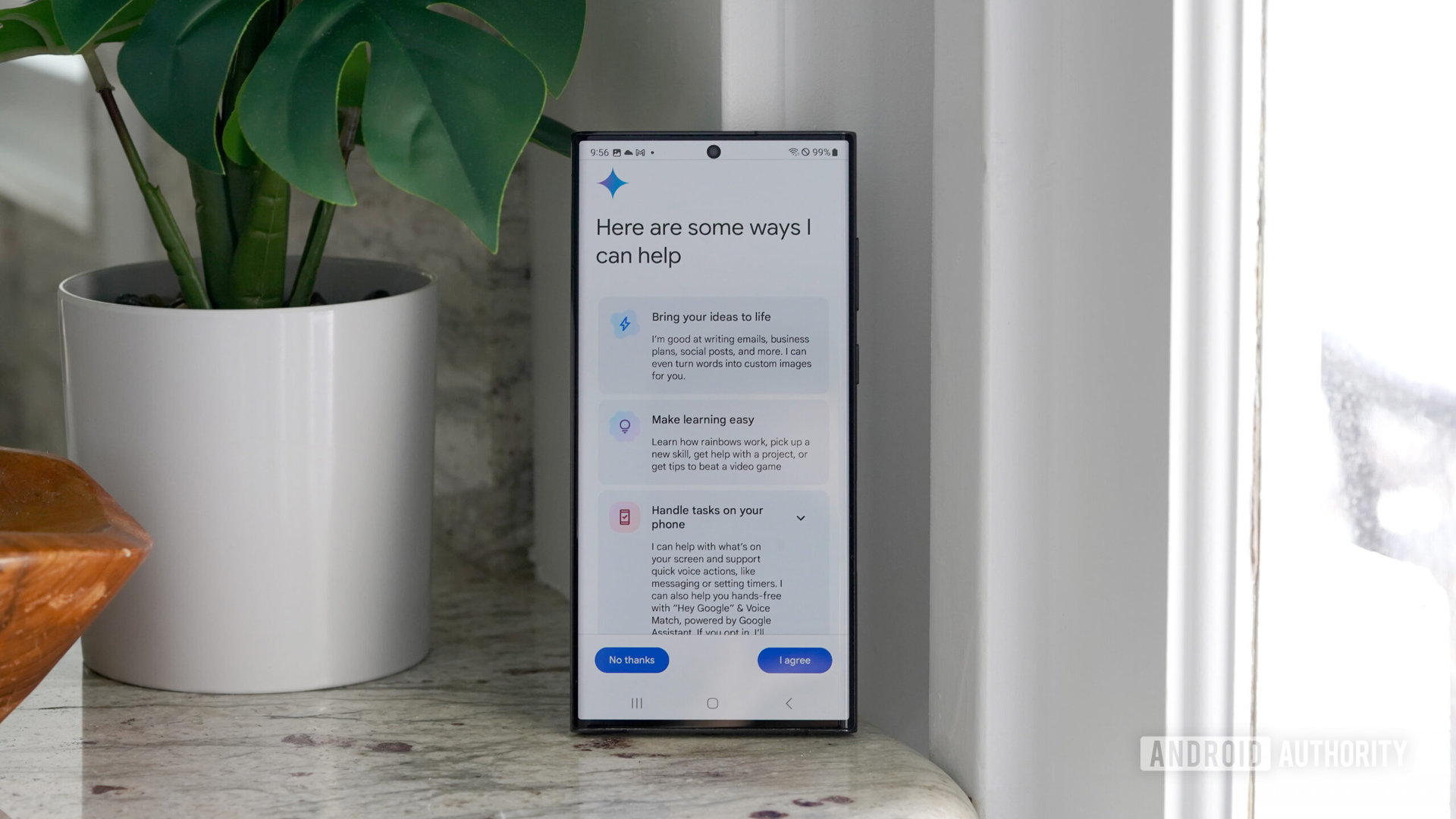Affiliate links on Android Authority may earn us a commission. Learn more.
We're slowly moving to a subscription phone, thanks to AI

For better or worse, AI is shaping up to be the cornerstone of smartphones for the foreseeable future. Google’s Pixel 8 and the Samsung Galaxy S24 series are already imbued with various AI capabilities, while many other Android brands and even the usually snail-paced Apple are hurrying to make their upcoming phones properly “smart.” Although we’re currently enjoying the explosive growth phase, with manufacturers throwing features at us left and right, we will soon find out whether consumers are willing to pay extra for AI in the longer term.
The writing is on the wall that at least some mobile AI features will eventually move behind a paywall. Samsung states that Galaxy AI will remain free until 2025. While the brand hasn’t made concrete decisions about the fiscal future of Galaxy AI, it has hinted that more advanced AI features could arrive for paid subscribers at the very least. Google already charges more for some of its latest AI features. Video Boost, for example, is only available on the more expensive Pixel 8 Pro, owing to data center costs. Cloud-based processing, in particular, has to be paid for somehow, and an “AI subscription” seems like the inevitable outcome.
Are AI capabilities worth as much as a monthly Netflix or Spotify subscription?
Google’s Gemini provides us with a glimpse through the looking glass. While the basic AI assistant remains free, advanced features like Help Me Write, which runs across Docs, Gmail, Sheets, and more, are locked away behind the new $19.99 per month Google One AI Premium plan. That nets you the 2TB storage and other benefits of the traditional $9.99 Premium option, so Google essentially values Gemini Advanced and its various integrations at $10 a month.
$10 a month isn’t expensive, but it’s not exactly cheap if you’re primarily composing emails. The big question AI subscriptions must answer is whether they can offer the equivalent value and everyday utility as the multimedia and other monthly fees customers are happy to pay. I’m not sure that text editing or enhanced web search would be enough to convince many to sign up.

Still, Google is probably onto something with the bundled service approach. Providers offering AI capabilities spanning documents, email, messaging, search, photos, videos, and more will be best positioned to command a subscription worth having. I wouldn’t be surprised if Samsung, Apple, and others have their eyes on a similar prize.
But why stop at software? Perhaps the stagnant state of modern hardware and the trend toward longer-term software support means it’s time to revisit the idea of smartphones-as-a-service. Would $35 or so a month for hardware and software be preferable to buying a $1,000 phone with an AI subscription on top? Probably, especially if it guarantees a stable set of features and encompasses future developments. But that all depends on AI becoming the indispensable tool some expect.
To convince, AI subscriptions will have to go above and beyond the basics.
The alternative is to run AI capabilities locally where possible, reducing long-term server costs and ensuring some control over the features users paid for. But there’s a limit here, both in terms of mobile hardware and the size of models needed for the most advanced AI processing. Not to mention that cloud computing runs everywhere and on nearly anything, making it easier for companies to reach as many consumers as possible.
Either way, subscriptions for additional services are one thing; charging consumers to continue using a phone’s advertised features would be quite another. Turning off Galaxy AI or Video Boost, for instance, and replacing them with a monthly fee would be a hammer blow to consumer goodwill and undermine any incentives to buy future devices based on software. Early AI trailblazers need to tread carefully.